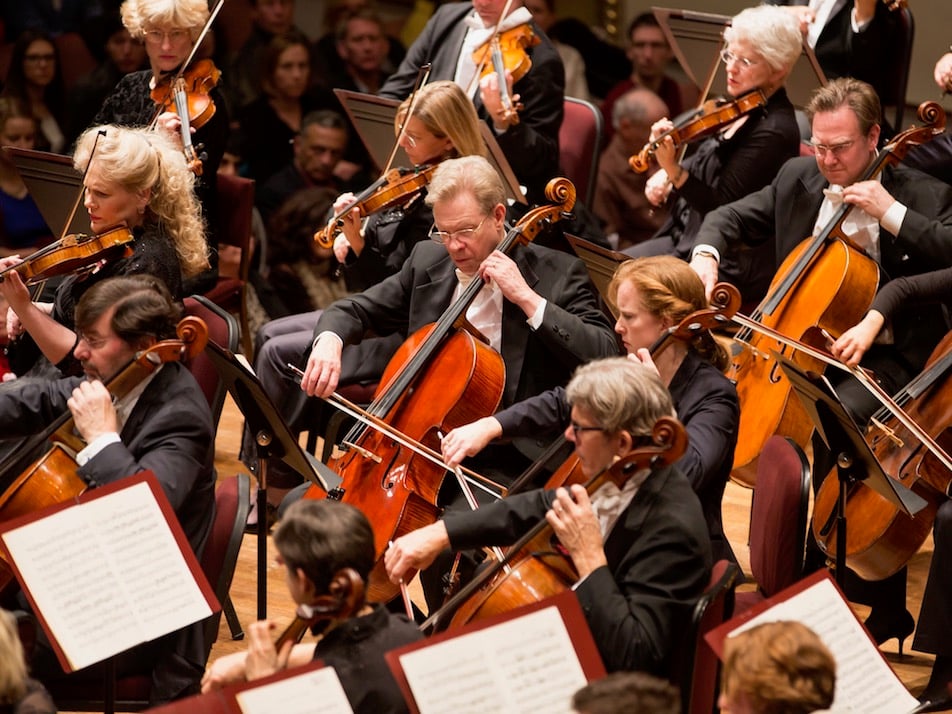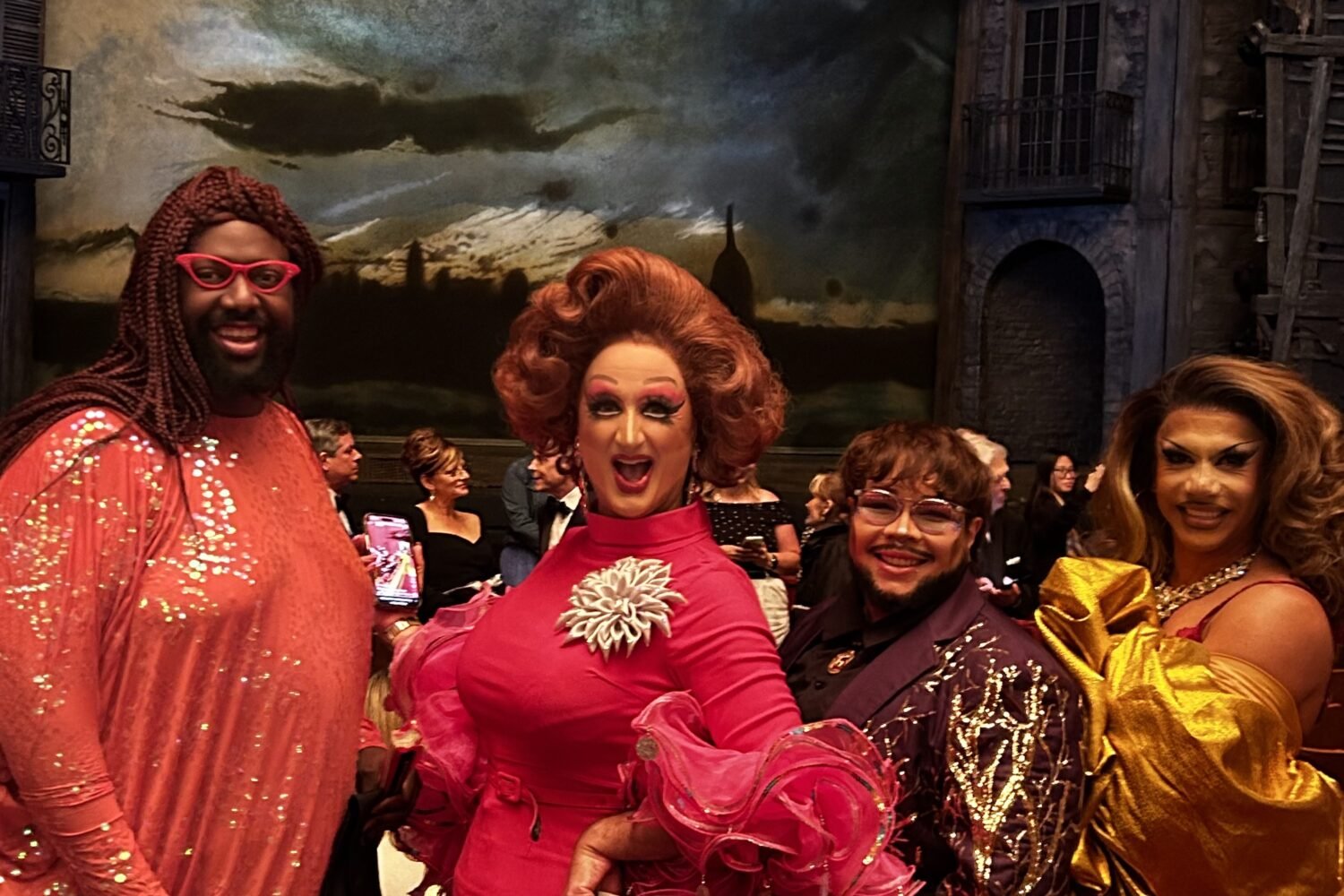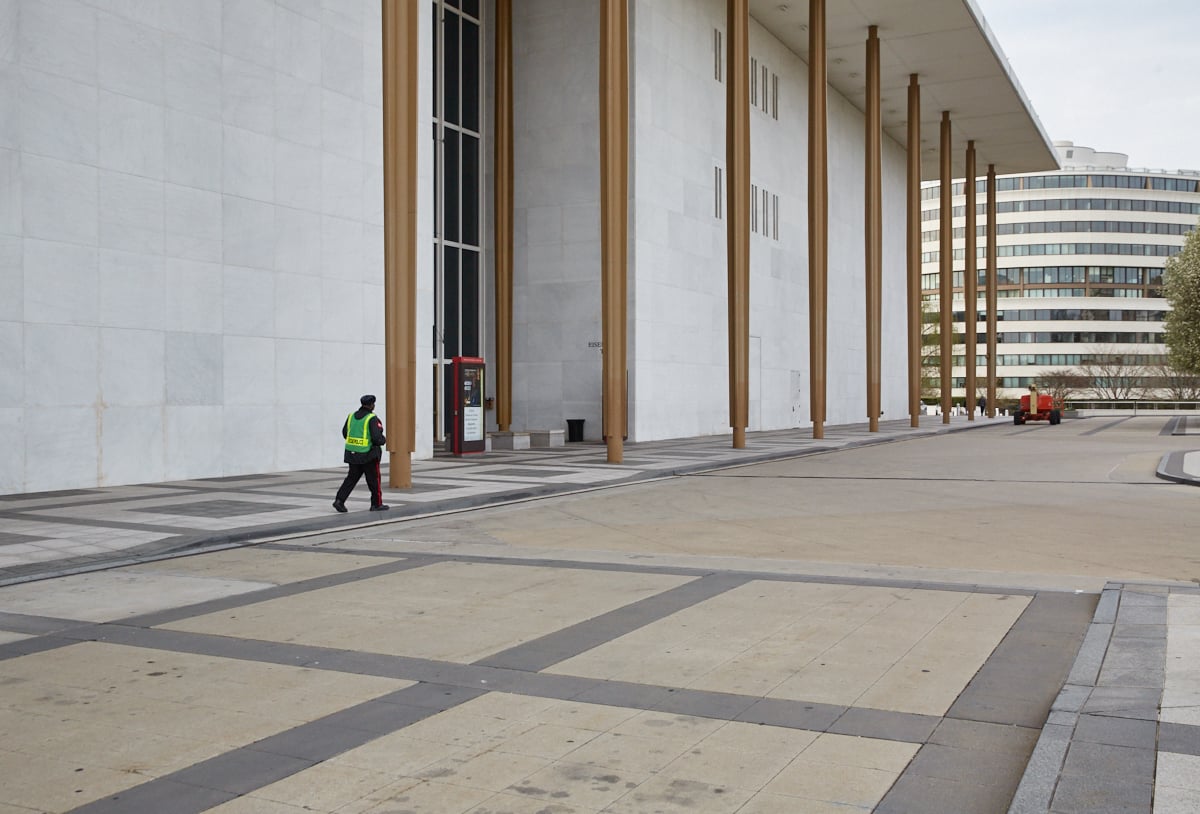The National Symphony Orchestra unanimously authorized a strike on Monday, calling for higher pay that would be competitive with other major orchestras like the New York Philharmonic or the Chicago Symphony.
Authorizing a strike is not the same as going on strike, but it does mean a work stoppage can called at any time. The musicians are still negotiating with their employer, the Kennedy Center, and have agreed to wait to strike at least until after the Sara Bareilles concerts on September 25 and 26. That could impact Saturday’s Season Opening Gala.
Bareilles thanked the Orchestra for continuing to play and expressed her solidarity on Instagram before the first DC show last night.
View this post on Instagram
Why are the NSO musicians going on strike?
According to a statement posted on by the musicians’ union on Instagram, they’ve been negotiating with the Kennedy Center since May for a new collective bargaining agreement. Their most recent CBA expired in early September.
The statement claims that musicians’ salaries have not kept up with inflation—to the contrary, their real wages, adjusted for inflation, have decreased by nearly 15 percent since the start of their last CBA more than five years ago. The statement also notes that the NSO musicians make “substantially less” than their peers in New York, Boston, Chicago, Los Angeles, and San Francisco, and that musicians in New York and Boston have in the last year agreed to new CBAs with substantial pay increases.
In a statement, the Kennedy Center says the NSO musicians have declined an offer that includes a 12 percent increase in wages over four years, and are instead asking for a raise of roughly 6.25 percent per year over the same span—a demand the Center says is “not financially viable.”
The musicians are seeking, in part, to recoup some of the losses they experienced during an 18-month pandemic shutdown, during which they received 65 percent of their salaries—a loss, the union claims, of at least $60,000 per musician.
The Center says that it had zero earned ticket income during that period, that all Center and NSO employees making a minimum of $75,000 also absorbed pay cuts ranging from 10 percent to 100 percent during the shutdown, and that no employee to date has recouped their lost wages.
The Center also notes that it recently negotiated new agreements with wage increases in the 12 percent-over-four years range with the Kennedy Center Opera House Orchestra and Washington National Opera Orchestra.
What does it mean for audiences?
For patrons of the NSO, your tickets are safe—for now. The musicians have confirmed that they will at least hold on striking for Bareilles’ two shows, and a spokesperson for the Orchestra says they will have more information regarding on Friday, September 27.
If an event is canceled due to a strike, the Kennedy Center will notify ticket holders as soon as possible and refund the cost of tickets and parking within 48 hours.


















